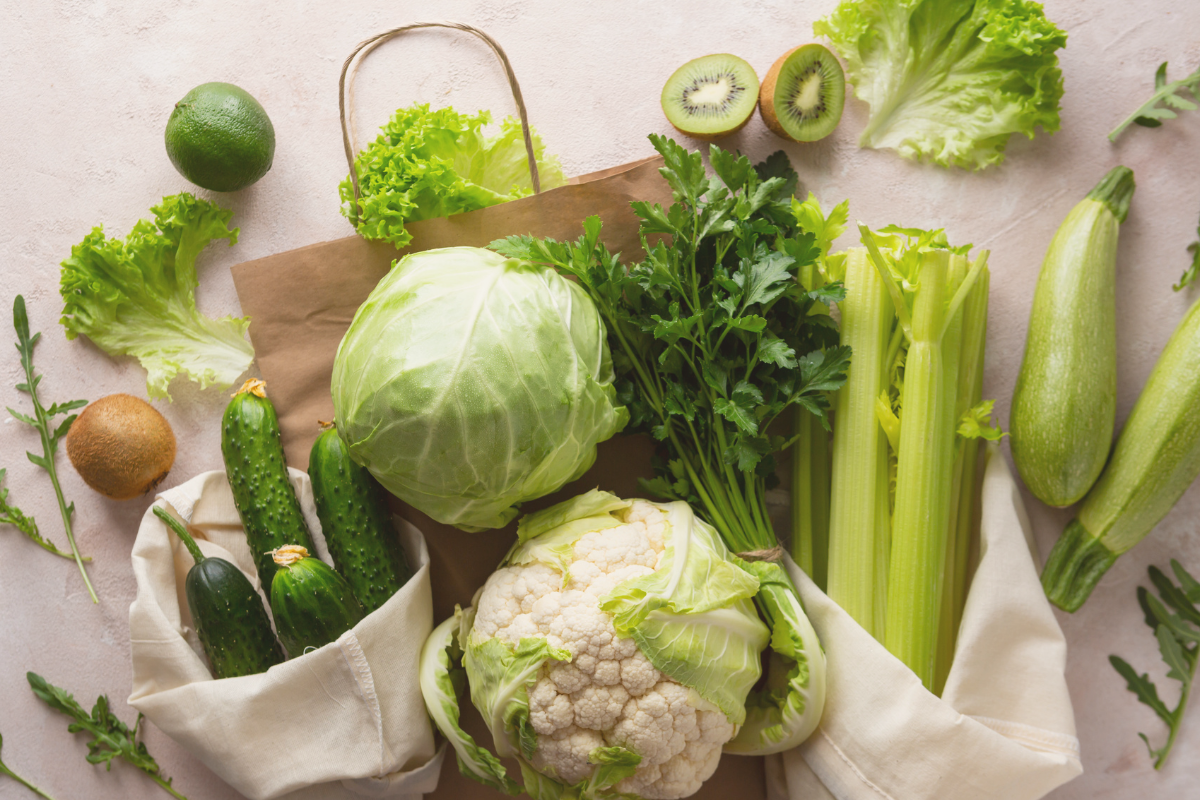What to Eat for Kidney Health: Your Individual Wellness Blueprint

KEY TAKEAWAYS
- A balanced, low-sodium diet with antioxidant-rich foods is essential for kidney health, reducing strain and supporting natural detoxification.
- Hydration is vital; drinking enough water each day aids in toxin removal, reduces kidney stone risk, and keeps kidneys functioning optimally.
- Targeted supplements like Roots Nutrition’s Power Purifier provide additional support, enhancing the kidneys’ natural detox pathways and reducing inflammation.
- Certain foods should be limited or avoided to prevent kidney strain, including high-sodium processed foods, sugary drinks, and excessive protein.
- Special dietary considerations for kidney health—such as managing potassium, phosphorus, and protein intake—can be achieved within vegan, vegetarian, and gluten-free diets.

Because they work tirelessly to cleanse the body and regulate minerals like sodium, potassium, and phosphorus, maintaining kidney health is essential for overall wellness. A kidney health diet can reduce the risk of kidney-related complications by supporting optimal function, reducing inflammation, and keeping blood pressure in check. Whether you’re looking to maintain your kidney health or simply want to incorporate kidney-supportive foods into your lifestyle, understanding what to eat for kidney health can make a lasting impact on your body’s resilience.
Supporting kidney function through dietary choices can help prevent kidney strain, inflammation, and even chronic issues later in life. A kidney-supportive diet emphasizes nutrient-rich foods, hydration, and balanced mineral intake. In this guide, you’ll discover essential nutrients that aid kidney function, explore kidney health foods, and learn how supplements and hydration practices can support kidney wellness. With a few strategic dietary adjustments, you can give your kidneys the nourishment they need to stay healthy and strong, empowering your journey toward long-term wellness.
Understanding Kidney Health and Nutrition

Kidneys are essential for maintaining the body’s balance by filtering waste, controlling blood pressure, and managing fluid levels. They work to filter about 120-150 quarts of blood daily, producing about 1-2 quarts of urine to excrete waste. However, because kidneys are sensitive organs, they can easily become overburdened or damaged from factors like dehydration, high sodium intake, and high-protein diets. The right nutrition can help prevent this strain, giving the kidneys the resources they need to function effectively.
Staying properly hydrated is crucial not just for kidney health, but for overall wellness. WebMD states that adequate hydration helps regulate body temperature, keep joints lubricated, prevent infections, deliver nutrients to cells, and keep organs functioning properly. The U.S. National Academies of Sciences, Engineering, and Medicine determined that an adequate daily fluid intake is about 15.5 cups (3.7 liters) of fluids a day for men and about 11.5 cups (2.7 liters) of fluids a day for women.
A kidney health diet focuses on foods that are gentle on the kidneys, providing antioxidants, vitamins, and minerals that support their detoxification role. When you choose foods that are high in beneficial nutrients and low in substances that may burden the kidneys, you set the stage for better long-term health. Understanding what nutrients and foods are beneficial for kidney health can empower you to make dietary choices that support these essential organs without compromise.
“Supporting kidney health through diet is a powerful way to promote overall wellness, giving your kidneys the nutrients they need to function at their best.”
Essential Nutrients for Kidney Health
Nutrition is foundational to kidney health, with specific nutrients supporting everything from inflammation control to toxin filtration. Here’s a look at some of the most crucial nutrients for kidney health and how they contribute to optimal kidney function.
- Omega-3 Fatty Acids: Omega-3s, especially EPA and DHA found in fatty fish, are known for their anti-inflammatory effects, which can reduce the risk of kidney inflammation. These fatty acids may also help lower blood pressure—a crucial factor in maintaining kidney health.
- Vitamin C: This potent antioxidant helps fight oxidative stress, which can damage kidney cells over time. Vitamin C also supports immune function, adding another layer of defense for kidney health. Foods rich in vitamin C include citrus fruits, strawberries, and bell peppers.
- Vitamin B6: As an important nutrient for protein metabolism, vitamin B6 helps lower the risk of kidney stones. Sources of vitamin B6 include poultry, fish, and chickpeas, which are easy to incorporate into meals.
- Magnesium: Magnesium helps regulate muscle and nerve function and also prevents kidney stone formation. Magnesium-rich foods like almonds, spinach, and avocados can support kidney health by reducing the risk of calcium oxalate buildup.
- Fiber: While fiber isn’t often highlighted for kidney health, it plays a role in reducing waste buildup. Dietary fiber supports digestive health and can also help regulate blood sugar levels, indirectly benefiting kidney function.
Incorporating these nutrients into your diet ensures a steady supply of kidney-supportive compounds that can protect and nourish your kidneys over time. By focusing on nutrient-dense foods, you give your kidneys the tools to perform their detoxifying duties with minimal strain.
What to Eat for Kidney Health: The Best Foods
Choosing the right foods is a powerful way to support kidney health and promote long-term wellness. Certain nutrient-dense foods contain antioxidants, anti-inflammatory compounds, and essential vitamins that aid kidney function, helping to reduce oxidative stress, support blood pressure regulation, and enhance natural detoxification processes. Incorporating these foods into your diet can make a meaningful difference, giving your kidneys the nourishment they need to perform their crucial roles effectively.
By pairing these kidney-supportive foods with targeted supplements like Roots Nutrition’s Power Purifier, you can maximize the health benefits, creating a holistic approach that supports both kidney function and overall vitality. Below, we explore some of the best foods for kidney health and how to incorporate them into a balanced, kidney-friendly lifestyle.
Berries: Antioxidant Powerhouses

Berries such as blueberries, strawberries, and raspberries are packed with antioxidants, which help fight oxidative damage and inflammation in the kidneys. Their low potassium content makes them suitable for those who need to monitor their potassium levels. Antioxidants in berries, particularly anthocyanins, help protect kidney cells from damage, supporting the body’s natural detoxification processes.
Berry Recipe Ideas:
- Berry Smoothie with Power Purifier: Blend a handful of mixed berries with Greek yogurt, water, and a scoop of Power Purifier. This smoothie not only provides antioxidants but also introduces the detoxifying and kidney-supportive benefits of our supplement.
- Berry Oatmeal Parfait: Layer cooked oats, mixed berries, and a sprinkle of chia seeds for a fiber-rich breakfast that supports digestion and kidney health.
- Frozen Berry Popsicles: Blend berries with water and freeze in molds. Enjoy a refreshing and hydrating snack that supports kidney function.
Incorporating berries into your meals is a tasty way to provide your kidneys with protective antioxidants. Adding a scoop of Power Purifier to your berry-based smoothie can further enhance the detoxifying and kidney-supportive effects of this meal.
Cabbage: Nutrient-Dense and Kidney-Friendly

Cabbage is a fiber-rich, low-potassium vegetable packed with vitamins and antioxidants. It’s particularly high in compounds like sulforaphane, which supports detoxification and reduces inflammation. These properties make cabbage a staple in kidney-friendly diets, offering both digestive and kidney support without overloading the body with potassium.
Kidney-Friendly Cabbage Dishes:
- Cabbage and Apple Slaw with Power Purifier Dressing: Toss shredded cabbage with julienned apples, parsley, and a dressing made with a diluted scoop of Power Purifier. The added detoxifying ingredients complement the antioxidants in cabbage.
- Steamed Cabbage with Olive Oil and Garlic: Drizzle steamed cabbage with olive oil and sprinkle with minced garlic for a simple, anti-inflammatory side dish.
- Stuffed Cabbage Rolls: Wrap a mixture of lean ground turkey, rice, and herbs in cabbage leaves. This low-potassium dish is rich in fiber and easy on the kidneys.
By incorporating cabbage into your diet, you support your kidneys’ natural detoxification process. Adding Power Purifier as a dressing component amplifies the detox benefits of this meal, enhancing kidney health further.
Garlic: Flavorful and Anti-Inflammatory

Garlic is a natural anti-inflammatory and antioxidant, making it an ideal choice for supporting kidney health. It provides flavor without adding sodium, helping those with kidney concerns maintain a low-salt diet. Garlic’s active compounds, including allicin, have been shown to reduce inflammation, improve circulation, and support blood pressure management—all of which benefit kidney function.
Kidney-Supportive Garlic Recipes:
- Roasted Garlic and Cauliflower Mash: Blend roasted garlic with steamed cauliflower for a kidney-friendly alternative to mashed potatoes that’s rich in flavor and low in potassium.
- Garlic and Herb Vegetable Stir-Fry: Sauté low-potassium vegetables like zucchini, bell peppers, and garlic with a splash of olive oil for a simple, nutrient-dense side dish.
- Garlic-Infused Olive Oil: Gently heat garlic cloves in olive oil, then use the infused oil to add a subtle garlic flavor to salads and cooked dishes without overloading on sodium.
Garlic’s anti-inflammatory benefits align well with the detoxifying effects of Power Purifier, which can be taken daily to support a low-sodium, kidney-focused diet.
Cauliflower: A Versatile, Low-Potassium Vegetable

Cauliflower is a kidney-friendly vegetable that’s high in fiber and antioxidants, yet low in potassium. This makes it an ideal choice for those looking to support kidney health without straining the kidneys with excess potassium. Cauliflower’s mild taste and versatile texture allow it to be incorporated into various dishes, making it easy to add to your diet regularly.
Cauliflower Recipe Ideas:
- Cauliflower Rice Stir-Fry with Power Purifier Sprinkle: Stir-fry cauliflower rice with low-potassium vegetables, and finish with a pinch of Power Purifier to incorporate additional detoxifying benefits.
- Roasted Cauliflower with Turmeric and Black Pepper: Season cauliflower with turmeric and roast until golden brown. Turmeric’s anti-inflammatory properties complement the kidney-supportive effects of this meal.
- Cauliflower and Lentil Soup: Blend cooked cauliflower and lentils for a creamy, protein-rich soup that’s easy on the kidneys and offers additional fiber.
Cauliflower is an excellent option for low-potassium, nutrient-dense meals. When paired with Power Purifier, you add a layer of detoxifying ingredients to enhance the kidney-supportive benefits of your diet.
Fish: Rich in Omega-3s for Inflammation Control

Fatty fish like salmon, mackerel, and trout are rich in omega-3 fatty acids, which help reduce inflammation and support kidney health. Omega-3s can also aid in blood pressure regulation, reducing one of the common risk factors for kidney strain. Unlike high-phosphorus proteins, fatty fish provide high-quality protein and anti-inflammatory benefits without overwhelming the kidneys.
Kidney-Friendly Fish Meals:
- Grilled Salmon with Power Purifier Lemon Glaze: Mix a small amount of Power Purifier into a lemon and olive oil glaze, then drizzle over grilled salmon for an added layer of kidney-supportive nutrients.
- Fish Tacos with Cabbage Slaw: Serve grilled fish in corn tortillas with a cabbage slaw. This meal combines protein, omega-3s, and antioxidants in a kidney-friendly format.
- Baked Trout with Fresh Herbs: Season trout with rosemary, thyme, and garlic, then bake until tender for a simple, flavorful main course.
Incorporating fish rich in omega-3s supports kidney health by reducing inflammation and promoting blood pressure balance. Adding a Power Purifier-enhanced glaze brings additional detox support, complementing the omega-3 benefits of fatty fish.
Red Bell Peppers: Low in Potassium, High in Vitamin C

Red bell peppers are naturally low in potassium and high in vitamin C, making them a great option for kidney health. They also contain lycopene and other antioxidants that support immune health and reduce oxidative stress on the kidneys. Bell peppers add a splash of color and a crisp texture to meals, providing a versatile and kidney-friendly ingredient.
Creative Ways to Enjoy Bell Peppers:
- Stuffed Bell Peppers with Quinoa and Herbs: Fill red bell peppers with a mix of quinoa, parsley, and spices, then bake for a colorful and nutrient-dense meal.
- Bell Pepper and Spinach Salad: Combine sliced bell peppers with fresh spinach, cucumbers, and a light vinaigrette for a kidney-friendly salad high in vitamins.
- Roasted Bell Peppers with Garlic and Olive Oil: Roast bell peppers with minced garlic and a drizzle of olive oil for a flavorful side dish that supports immune and kidney health.
Red bell peppers are both kidney-friendly and rich in immune-boosting antioxidants, aligning well with the detoxifying benefits of Power Purifier when used as part of a balanced diet.
Apples: High Fiber for Toxin Removal

Apples are rich in fiber and low in potassium, making them ideal for supporting kidney health. The fiber in apples aids in digestion, reducing waste buildup that kidneys need to process. Apples also contain antioxidants that help fight inflammation, further supporting kidney function and overall health.
Apple-Based Kidney Health Recipes:
- Apple and Cabbage Slaw: Toss thinly sliced apples with shredded cabbage, a handful of parsley, and a light vinaigrette. This salad is high in fiber and supports both digestive and kidney health.
- Baked Apples with Cinnamon: Core apples and sprinkle with cinnamon before baking. This warm, fiber-rich snack is gentle on the kidneys and can be enjoyed as a healthy dessert.
- Apple and Spinach Smoothie with Power Purifier: Blend apples, spinach, water, and a scoop of Power Purifier for a detoxifying smoothie that’s perfect for kidney health.
Apples provide a mild sweetness and fiber that support toxin removal, helping the kidneys function efficiently. When combined with Power Purifier in a smoothie, this fruit offers a powerful boost to your kidney health routine.
Enhancing Kidney Health with a Holistic Approach
Incorporating these kidney-supportive foods into your daily meals, along with hydration and regular physical activity, forms the foundation of a proactive approach to kidney wellness. With a focus on nutrient-dense, low-sodium options, each of these foods contributes specific benefits that support kidney function, reduce inflammation, and balance electrolytes. Adding Roots Nutrition’s Power Purifier as a daily supplement further enhances the detoxifying and kidney-supportive qualities of your diet, empowering you to take charge of your health and wellness journey in a meaningful way.
By choosing foods that nourish and support your kidneys, you’re investing in your long-term health. Power Purifier complements these dietary efforts, offering targeted ingredients that aid in detoxification and kidney support. This holistic approach ensures that your kidneys continue to function optimally, allowing you to thrive in both body and mind.
Foods to Avoid for Optimal Kidney Function
While certain foods support kidney health, others can have the opposite effect, placing strain on these vital organs. Foods high in sodium, sugar, and certain proteins can stress the kidneys, contributing to potential long-term complications. Here are some foods to limit or avoid to help keep your kidneys functioning optimally:
- High-Sodium Foods: Excessive salt intake is linked to high blood pressure, which strains the kidneys. Processed foods, canned soups, fast foods, and deli meats are typically high in sodium and should be consumed sparingly.
- Processed Meats: Bacon, sausages, and other processed meats are not only high in sodium but also contain preservatives that can burden the kidneys. Limiting processed meat intake can reduce sodium levels and ease kidney stress.
- Red Meat: High-protein foods like beef and lamb can increase the body’s waste load, which the kidneys must filter. Reducing red meat consumption can lessen the burden on your kidneys, especially if you consume other protein sources.
- Sugary Beverages: Sodas, energy drinks, and sweetened teas contribute to high blood sugar and obesity, both of which can negatively impact kidney function. Choosing water or unsweetened beverages is a healthier alternative.
- High-Oxalate Foods: Foods like spinach, beets, and almonds contain oxalates, which may contribute to kidney stones if consumed excessively. Moderating oxalate-rich foods can help reduce kidney stone risk, particularly in those with a history of stone formation.
Avoiding or limiting these foods can help reduce unnecessary kidney strain, allowing these organs to perform their natural functions without additional pressure. By making mindful food choices, you protect your kidneys from added stress and promote healthier overall function.
Creating a Kidney-Friendly Meal Plan: Step-by-Step
Building a meal plan that supports kidney health involves focusing on foods that are low in sodium, moderate in protein, and rich in antioxidants and anti-inflammatory compounds. This structured approach offers guidance on creating balanced meals throughout the day to keep your kidneys functioning optimally and your energy levels stable.
Building a kidney-friendly meal plan involves choosing foods that are gentle on the kidneys, low in sodium, and high in nutrients that support detoxification and hydration. This guide walks you through each step, making it easy to create balanced, kidney-supportive meals throughout the day.
Step 1: Begin with a Balanced, Low-Sodium Breakfast
Starting your day with a nutritious breakfast that includes a mix of protein, fiber, antioxidants, and healthy fats sets a strong foundation for kidney health. A well-rounded breakfast helps to stabilize blood sugar, boost metabolism, and prepare your kidneys for the day ahead. Aim for moderate protein sources like Greek yogurt or a plant-based alternative, paired with fiber-rich fruits such as berries. Fiber plays a key role in digestion and reduces waste buildup, which supports kidney function. Adding a source of healthy fats, such as chia seeds or flaxseeds, provides anti-inflammatory benefits and helps you feel full for longer. Together, these foods provide essential nutrients that are gentle on the kidneys while keeping you energized.
Step 2: Opt for Hydrating, Kidney-Friendly Mid-Morning Snacks
A well-timed mid-morning snack can help maintain stable energy levels and prevent overeating at lunch. When choosing snacks, focus on options that are low in sodium, high in fiber, and hydrating. This is especially beneficial for kidney health, as hydration supports the kidneys’ toxin removal processes. Fresh fruits like apples or pears, and raw vegetables such as bell pepper slices or cucumber, offer hydration and fiber without added sodium, which reduces kidney strain. Pairing your snack with a glass of water is also important, as water plays a crucial role in flushing out waste. Choosing hydrating, kidney-friendly snacks helps reduce strain on the kidneys while keeping you satisfied until your next meal.
Step 3: Plan a Balanced Lunch with Moderate Protein and Vegetables
Lunch is an opportunity to create a well-balanced meal that includes lean protein, fresh vegetables, and healthy fats, all of which support kidney health. Choose a moderate portion of lean protein, such as grilled chicken, turkey, or fatty fish like salmon, which is rich in anti-inflammatory omega-3s. While protein is essential, keeping portions moderate helps prevent excess waste, which the kidneys must filter. Adding a variety of low-potassium vegetables, such as cabbage, cauliflower, or bell peppers, provides fiber and antioxidants to support kidney function. Including a small amount of healthy fat, like olive oil or avocado, can enhance satiety and add anti-inflammatory benefits to your meal. This balanced approach for lunch fuels you for the afternoon and keeps your kidneys in mind.
Step 4: Keep Your Afternoon Snack Light and Nutrient-Dense
An afternoon snack can help you avoid energy dips and curb cravings before dinner. Choose nutrient-dense, low-sodium options that are easy on the kidneys and provide sustained energy. Small portions of fruit or a handful of unsalted nuts are ideal, as they are low in sodium and rich in antioxidants that reduce oxidative stress on the kidneys. Staying hydrated is equally important, so consider having a glass of water or a cup of herbal tea alongside your snack. This light, kidney-friendly snack keeps you energized without adding unnecessary sodium or burdening your kidneys.
Step 5: End the Day with a Kidney-Friendly, Well-Rounded Dinner
Dinner should be nourishing but not too heavy, allowing your body to rest and recover overnight. Aim for a combination of moderate protein, fiber, and plenty of vegetables that support kidney health. Choose a lean protein source like chicken, fish, or plant-based proteins if preferred, keeping portions moderate to reduce the amount of waste the kidneys must filter overnight. Include fiber-rich vegetables such as cauliflower, asparagus, or leafy greens (if potassium is not a concern) to provide essential nutrients without excessive sodium. Instead of salt, use kidney-supportive herbs like garlic, rosemary, or basil to enhance flavor while adding antioxidant benefits. This balanced dinner supports your body’s natural recovery and prepares your kidneys for a restful night.
Step 6: Maintain Hydration Throughout the Day
Hydration is essential for kidney health, as water helps flush toxins from the body. To support kidney function, make a conscious effort to drink water consistently throughout the day. Setting hydration goals, such as aiming for 8–10 glasses of water daily (unless advised otherwise), keeps your kidneys hydrated and helps maintain balanced electrolytes. Replacing sugary or caffeinated beverages with water or herbal tea also reduces dehydration risks and eases the kidneys’ workload. Staying hydrated throughout the day is a simple yet powerful way to support kidney health and enhance the effectiveness of your meal plan.
Taking simple, mindful steps in your daily diet can make a big difference in supporting kidney health. By focusing on kidney-friendly foods, staying hydrated, and keeping your meals balanced, you help your kidneys function at their best. For those looking for an extra boost, Roots Nutrition’s Power Purifier offers targeted support for natural detoxification, complementing your kidney-friendly lifestyle.
Small, consistent choices lead to meaningful results, giving you a foundation for better kidney health and overall wellness.
“Small, consistent choices like hydration, balanced meals, and the right supplements create a foundation for better kidney health and long-term vitality.”
Supplements for Kidney Health
While a balanced, kidney-friendly diet is crucial, certain supplements can provide additional targeted support for optimal kidney health. Roots Nutrition’s Power Purifier is crafted to enhance natural detoxification, reduce inflammation, and promote mineral balance, providing your kidneys with the tools they need to function effectively.
This unique blend includes dandelion root and nettle leaf, which are known for their gentle detoxifying and anti-inflammatory properties. Dandelion root promotes healthy urine flow, supporting the kidneys’ natural filtration and toxin elimination processes, while nettle leaf helps reduce inflammation, easing the burden on the kidneys. Together, these ingredients offer targeted kidney support, making Power Purifier an ideal choice for those looking to reinforce their kidney health naturally.
For a more holistic approach to detoxification, Power Purifier pairs well with Power Cleanser, a supplement that supports additional detox pathways in the liver and colon. This combination ensures that all major elimination systems work in harmony, creating a balanced and effective detoxification process that enhances overall wellness.
At Roots Nutrition, we believe in supporting the body’s natural ability to cleanse and restore itself. By integrating Power Purifier into your routine, you’re choosing a kidney health supplement that aligns with a holistic approach to both kidney health and overall health, empowering your body to function at its best.
Hydration and Kidney Health

Adequate hydration is essential for kidney health, as water helps flush toxins from the kidneys and keeps these organs functioning smoothly. Staying hydrated also prevents the formation of kidney stones, a common complication of dehydration.
Tips for Staying Hydrated
- Daily Intake: Aim for 8-10 glasses of water per day, adjusting for activity level and climate.
- Urine Color: Monitor the color of your urine as a simple hydration check—light yellow generally indicates good hydration.
- Limit Sugary Drinks: Opt for water or herbal teas over sugary or caffeinated drinks that can contribute to dehydration.
- Include Water-Rich Foods: Incorporate foods like cucumber, watermelon, and lettuce for extra hydration support.
Proper hydration is foundational for kidney health, supporting waste removal and preventing potential complications. By prioritizing hydration, you help your kidneys perform their essential functions more effectively.
Managing Kidney Health with Diet: Special Considerations
For individuals with specific kidney concerns, certain dietary adjustments can make a positive difference. Managing kidney health through diet requires awareness of nutrients like potassium, phosphorus, and protein, as well as adapting dietary restrictions—such as gluten-free, vegan, or vegetarian choices—to support kidney function effectively. Here are some targeted strategies to consider for maintaining kidney health while respecting various dietary needs.
Potassium Management
People with kidney issues may need to limit high-potassium foods, as excess potassium can accumulate in the bloodstream when kidney function is impaired. This may involve reducing or avoiding high-potassium foods like bananas, potatoes, and oranges. Low-potassium alternatives, such as apples, carrots, and white rice, provide essential nutrients without overwhelming the kidneys.
Those following vegan or vegetarian diets may need to be especially mindful of potassium intake since plant-based foods can be higher in potassium. For example, swapping out high-potassium leafy greens like spinach with lower-potassium options such as kale or cabbage can help maintain a plant-based diet that remains kidney-friendly.
Phosphorus Control
High phosphorus levels can lead to calcium deposits in soft tissues, which can be particularly problematic for individuals with reduced kidney function. Phosphorus is often found in dairy products, meats, and certain processed foods. Low-phosphorus choices, such as cabbage, berries, cauliflower, and non-dairy milk alternatives (e.g., almond or rice milk), support kidney health without adding excessive phosphorus to the diet.
For those following a vegan or vegetarian lifestyle, choosing plant-based proteins such as lentils or chickpeas in moderate amounts and pairing them with low-phosphorus vegetables can provide balanced nutrition without overloading on phosphorus. Gluten-free individuals should be cautious with certain gluten-free packaged foods, as some contain added phosphorus for texture or preservation. Reading labels and selecting whole foods over processed options helps manage phosphorus intake effectively.
Moderate Protein Intake
While protein is essential for body repair and function, excessive protein can produce waste that puts additional strain on the kidneys. For kidney health, moderate protein intake is recommended. Lean protein sources like chicken, eggs, or certain types of fish provide essential amino acids without overwhelming the kidneys. However, those on vegan or vegetarian diets may need to seek alternative sources of moderate protein, such as tofu, tempeh, and lentils, to meet their needs.
Balancing protein intake within vegan or vegetarian diets is achievable by focusing on lower-potassium, moderate-protein foods and limiting high-protein nuts or seeds. For gluten-free diets, gluten-free grains like quinoa can serve as a good source of complete protein, making it suitable for those who want to support kidney health without consuming animal proteins.
Gluten-Free Diets and Kidney Health
Gluten-free diets can support kidney health as long as they prioritize whole foods and nutrient-dense choices. Many gluten-free packaged foods contain added sodium and phosphorus for preservation, which can strain the kidneys if consumed in large amounts. Focusing on naturally gluten-free, low-sodium foods like vegetables, fruits, rice, and quinoa offers essential nutrients without the additives.
If you follow a gluten-free diet and are concerned about phosphorus or potassium, consider consulting a healthcare provider or nutritionist to help identify gluten-free foods that align with kidney health goals. Gluten-free diets can be kidney-friendly with mindful choices that avoid processed foods and emphasize fresh, whole ingredients.
Vegan and Vegetarian Diets for Kidney Health
While this blog focuses on kidney health, it's worth noting that a plant-based diet offers numerous benefits for overall wellness. According to Harvard Health, plant-based diets are associated with lower risks of heart disease, high blood pressure, diabetes, and certain cancers. They're also linked to a lower body mass index (BMI) and reduced inflammation in the body.
Plant-based diets are generally high in fiber, antioxidants, and anti-inflammatory compounds, all of which support kidney health. However, individuals following vegan or vegetarian diets may need to be mindful of potassium, phosphorus, and protein intake, as these nutrients are prevalent in plant foods. For example, beans and legumes, while great sources of protein, can be high in potassium and phosphorus.
Balancing a vegan or vegetarian kidney health diet involves choosing lower-potassium plant foods (like bell peppers, cabbage, and apples) and moderate portions of protein-rich sources such as lentils and tofu. Additionally, opting for fortified plant-based milk alternatives with minimal added phosphorus provides necessary nutrients without stressing the kidneys. Including a variety of vegetables, grains, and legumes in moderation can create a satisfying, kidney-supportive plant-based diet.
By making these dietary adjustments, individuals with kidney concerns can optimize their nutrition while meeting specific dietary needs, such as gluten-free, vegan, or vegetarian preferences. Consulting with a healthcare provider or nutritionist can provide additional personalized guidance, ensuring a diet that supports kidney health without compromising essential nutrients.
Personalized Support for Your Kidney Health Journey
Your path to kidney health is as unique as you are, and it deserves a thoughtful, personalized approach. At Roots Nutrition, we’re committed to supporting your wellness goals with products crafted to align with Dr. Brooks' holistic philosophy of health. With decades of experience in natural health and healing, Dr. Brooks has developed solutions that blend scientific insight with herbal wisdom to address the root causes of kidney stress and promote optimal function.
By focusing on kidney-friendly foods, hydration, and targeted supplements like Power Purifier, you can take meaningful steps toward sustainable kidney health and overall well-being. Our products offer more than just support—they empower you to nurture your body with natural ingredients that align with your lifestyle and health journey. Roots Nutrition stands as a trusted partner in your quest for vitality, providing the guidance and tools you need to achieve balanced, lasting health. With us, you’re never alone on your wellness journey.
Common Questions About What to Eat for Kidney Health
What is the best diet for kidney health?
A kidney health diet emphasizes foods low in sodium, moderate in protein, and rich in antioxidants and anti-inflammatory nutrients. Incorporating fruits, vegetables, lean proteins, and whole grains, while limiting red meat, processed foods, and high-sugar drinks, can support kidney function and reduce strain.
How can I support kidney health naturally?
Supporting kidney health naturally involves maintaining a balanced diet, staying hydrated, and avoiding excessive salt and protein. Foods like berries, garlic, and fatty fish, along with targeted supplements, can enhance kidney function by reducing inflammation and supporting detoxification.
Are there specific foods to avoid for kidney health?
Yes, certain foods can stress the kidneys and should be limited. These include high-sodium processed foods, red meat, sugary beverages, and high-potassium foods if potassium levels are a concern. Limiting these foods helps reduce kidney strain and promotes better overall function.
Can a vegan or vegetarian diet be kidney-friendly?
A vegan or vegetarian diet can support kidney health when carefully planned. By choosing lower-potassium vegetables, moderate plant proteins like tofu, and whole grains, you can maintain balanced nutrition without overloading on potassium or phosphorus, which is essential for kidney function.
What supplements are good for kidney health?
Supplements like Omega-3 fish oil, vitamin D, magnesium, and targeted herbal blends such as Roots Nutrition’s Power Purifier can provide support for kidney health by reducing inflammation, balancing minerals, and promoting detoxification. Consulting a healthcare provider before starting supplements is advised.





